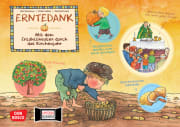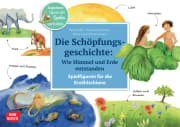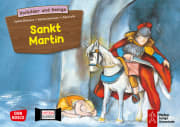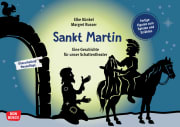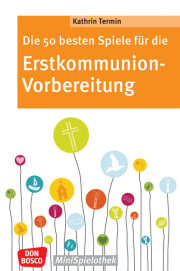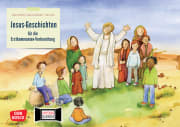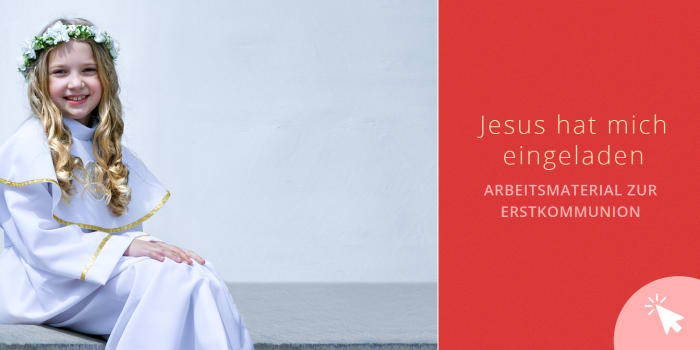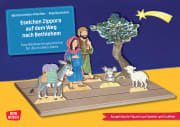Life - Works - The poem "I wish you time"
Publiziert am 01.05.1989 von Elli Michler
© DonBosco Medien
Directlink: I wish you time
Life
Elli Michler was born on 12 February 1923 in Würzburg, Germany, at a time of rampant inflation, political unrest and economic crisis.
She was an only child and she had a happy and sheltered childhood despite the difficult times. She lived with her mother, who suffered from severe hearing loss, her father, who was a businessman, and her grandmother, of whom she was particularly fond.
She was still a young student when the Nazis shut down her convent school, bringing an abrupt end to her education before she had the chance to get any qualifications.
Having completed a year of compulsory civilian service, she was sent to work for an industrial group in Würzburg shortly after the outbreak of the Second World War, in which her father was called up to fight from the very beginning.
After 6 years of horror, monotonous work and aerial warfare that destroyed her cherished hometown, she volunteered to work on the reconstruction of the University of Würzburg. This proved to be a turning point in the life of Elli Michler, who was still longing for an education.
At around the same time, she met the man who would be the great love of her life: "MM", a former prisoner of war who had been displaced from Breslau and started his studies in Würzburg in great poverty. Three years later they married, after she had graduated in economics and he had completed his training as a grammar school teacher.
With great regret, the young couple had to leave their beloved Würzburg after the birth of a daughter. Hesse was the only place where job opportunities were available, so the family moved first to Frankfurt am Main and then in 1961 finally settled in Bad Homburg.
Throughout her life, Elli Michler felt a fundamental need to write and derived great joy from it. However, after the physical and emotional stress linked to taking care of elderly parents and to their passing away, she was able to fully devote herself to writing.
Consequently, her poems – which she wrote about any topic that moved her – were not published until her later years. Nonetheless, they went on to enjoy huge, unexpected success that has continued to the present day.
Elli Michler died on 18 November 2014 at the age of 91.
Works
From 1987 onwards, Don Bosco Verlag in Munich published many volumes of Elli Michler’s poetry, as well as an autobiography entitled "Ich träum' och einmal vom Beginnen" [I dream once again of the beginning].
In her works, the writer dealt with timeless, fundamental human issues such as love, fears and desires, coming and going, and the meaning of life. In her poems, she sought to rediscover values that had been lost in modern everyday life, including the bond with nature, attachment to one’s country, and the sense of security in love.
The success of her poems is underlined by the number of books sold and the countless admiring letters from readers.
Her popular collection of wish-poems "Dir zugedacht" [Dedicated to you] - "Wunschgedichte" [Wish poems] (which has now reached its 22nd edition) was reprinted no fewer than four times in the year after it was first published.
Why have they flourished so much?
Many people seek an enthralling, positive message that speaks of honesty, depth and maturity. Through her meaningful, true-to-life and easily comprehensible poems, Elli Michler offered precious help to people living in modern times.
She had the gift of picking out the parts of everyday life that really matter and conveying their essence in literary form using clear and simple yet beautiful language so that readers could easily identify with her works.
Her linguistically polished poetry strikes a chord due to its rhythm and the frequent use of rhymes. It impresses readers with its deep thoughts and philosophical wisdom.
Elli Michler’s works meet all three requirements that Kastner set out for poets: sincerity of feelings, clarity of thought and simplicity in style.
When asked what a poem is, Schopenhauer replied: "a piece of eternity in time". This answer inspired Elli Michler to help people caught amid the many challenges, fears and hectic pace of life today, by presenting the opportunities that poetry can offer to bring inner peace and take a positive view of their problems. The deluge of enthusiastic and grateful reader letters bears witness to the psychotherapeutic effect of her verses.
The poem "I wish you time"
As well as establishing an aesthetically appealing style, with her poems Elli Michler aimed to offer moral support for those suffering from a widespread identity crisis. Therefore, it was only natural for her to make wishes the topic of one of her first collections of poetry, which was entitled "Dir zugedacht" [Dedicated to you]. It was first published by DBV in 1989 and it has now reached its 22nd edition.
Along with equally important wishes such as "Protection", "Joy", "Quiet" and "Courage", the poem "I wish you time" soon became a favourite among readers and to this very day it still encapsulates the deepest longing of people living in our time.
Anyone who read the poem for the first time felt engaged and fascinated by it and immediately wanted to share it with other people. This triggered a host of reprints that in recent years has seen the poem spreading across German-speaking countries and beyond. The poem continues to enthuse readers, who have found it in countless books, journals and newspapers, as well as in thousands of parish newsletters and for some years now also on the internet.
Whether the poem is used to welcome hotel guests in Italian and Hungarian beach resorts, read by people in Morocco or the Czech Republic, posted in motorway service areas or on church doors on islands in the North Sea, the feedback has always been overwhelming. It has come from as far away as America, Israel and Australia.
The late German actor and radio host Baldur Seifert called it the “poem of the century” after his reading of it on the German radio station Südwestfunk (now known as SWR) met with such huge success that soon all of the other German radio stations – and especially Petra Pascal on WDR – started broadcasting it, thus further spreading its fame.
In Germany and Switzerland, some volumes of Elli Michler’s works have been published in Braille, including the poem "I wish you time".
Of the over 100 musical versions of Michler’s works, almost 40 are of this popular and well-known poem.
Translated by SB Traduzioni
Elli Michler
Elli Michler, 1923 bis 2014. In ihren Gedichten hat die erfolgreiche Lyrikerin die großen Lebensthemen der Menschen aufgegriffen. 2010 wurde sie für ihr Werk mit dem Bundesverdienstkreuz ausgezeichnet.
mehr zum AutorIhre Meinung ist uns wichtig.
Deshalb freuen wir uns über Ihr persönliches Feedback
Elli Michler
Elli Michler, 1923 bis 2014. In ihren Gedichten hat die erfolgreiche Lyrikerin die großen Lebensthemen der Menschen aufgegriffen. 2010 wurde sie für ihr Werk mit dem Bundesverdienstkreuz ausgezeichnet.
mehr zum Autor









